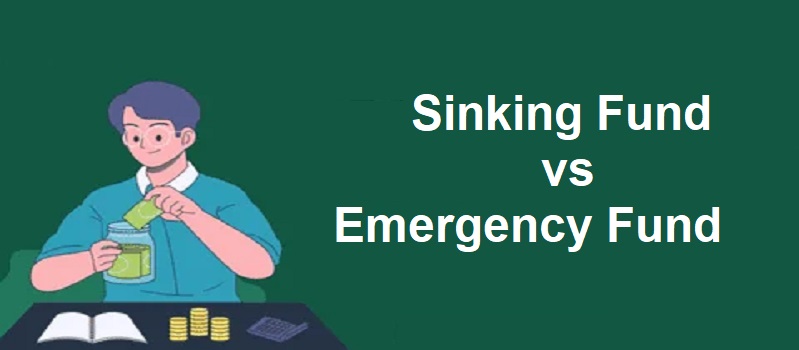Every year, many people take up a home refurbishment project. While some do not need to overthink before swinging into action, others try to figure out what areas need to be made over because of being tight with cash. Those who already have a budget do not have to worry about finances. Luck is on your side if you have stashed away a significant sum. Those who cannot afford to make structural changes that suit their wants and needs straightaway from their pocket can rely on a loan for home renovation.
A home renovation loan is a type of funding source that you use to do up your house. It includes add-ons and extensions, too. However, it is crucial to note that there is no one home improvement loan. Funds you borrow for this purpose have this name. There are broadly two types of loans such as secured and unsecured. Here are the types of home improvement loans:
- Home equity loan
A home equity loan is a secured loan that uses the equity in your home as collateral. The equity of your house is calculated by determining the market value of your house minus the outstanding mortgage. You cannot borrow more than the equity you have built in your house.
However, lenders will not lend you more than 80% of the equity value. They have their own methods to assess the market value of your house, which may be lower than you expected. Only if you have a good credit score and a stable income source can these loans be effective for you.
| Pros Fixed monthly paymentsLower rates than unsecured loansUnrestricted use | Cons Increased debt and foreclosure riskOrigination feesStrong credit requirement |
- Home equity line of credit
Home equity line of credit is similar to home equity loans, with the only difference being that it offers a revolving credit line instead of lump sum cash. Do not assume that you can use either of them when you have to renovate your house.
A home equity line of credit is suitable only for those refurbishment projects that do not have a price tag. You can withdraw money as needed, but your lender will cap on a limit you can withdraw at a time and charge withdrawal fees every time on top of interest. Interest rates depend on your credit history and the loan amount.
| Pros Interest rates are lower than credit cards.You can use money as per your discretion.Your budget will be flexible. | Cons Foreclosure riskPayment in full if the drawn period expires, the burden on your budgetRequires strong credit ratingVariable interest rates |
- Personal loan
Personal loans can be very convenient for carrying out remodelling projects for your house, especially if you do not want to risk your equity. Personal loans can be quite expensive as they are not secured against your home or other valuable assets.
You must have a good credit score to qualify for them, but bad credit borrowers are also welcome, but interest rates will be slightly higher. The lending amount will be decided based on your repaying capacity.
| Pros No foreclosure riskNo collateralFast fundingFixed and variable interest ratesManageable and flexible monthly payments | Cons Interest rates will be high, even higher in case of a bad credit ratingShort repayment term, usually 12 monthsIt can be difficult to secure if income sources are not good enough |
- Cash-out refinance
A cash-out refinance is a type of mortgage. It involves refinancing your current mortgage into a new loan that lets you borrow money against the equity of your house. As a lender cannot finance 100% equity, they cannot lend you more than 80% of it. Cash-out refinance is the best option when mortgage rates are very low.
As cash-out refinance means taking out a new mortgage, it makes more sense when you get affordable interest rates. You can take advantage of better interest rates due to improved credit rating as a result of on-time payments of your current mortgage until you apply for refinancing. The amount of equity and your repaying capacity will determine how much you can borrow.
| Pros Fixed interest rates and monthly paymentsLump sum cash amountUnrestricted use | Cons Increased debtClosing costs of current mortgageForeclosure riskRequire a high credit score and equityA strong debt-to-income ratio |
Which home improvement loan is the best for your needs?
There are several types of loans for home renovation, but they are not all suitable to your needs. Here are a couple of questions to help you decide which one you should opt for. If you still have any doubts, you should consult a financial advisor.
- Do you have built enough equity? If not, home equity loans and home equity lines of credit are not your options.
- How quickly do you want to get funds? If you need an instant injection of cash, personal loans will come in handy. If you need a small sum for a small repair or refurbishment work, you can consider using a credit card or loans with no guarantor.
- How strong is your credit report? If your credit score is not so strong, you will need to apply for secured funding options for the revamp of you house.
- How important is it to save money? Home equity and home equity line of credit come with lower interest rates but equity is exhausted. Personal loans carry higher interest rates but equity is safe. Check your priorities and then decide which one is better for you.
The bottom line
Home improvement loans can easily fund your renovation project. However, you will have to weigh the pros and cons of each type of funding source for home renovation. Consult a financial advisor to get accurate information.

Mark Williams works as one of the Loan Advisors at a direct lender firm, Onestoploansolution. He has been working with the lender for about 15 years. He has been known to facilitate his employer in remarkable ways from writing to consulting and whatnot. He is a professional who wants to explore more of the UK financial market, the loan products and how customer requirement changes with time.






